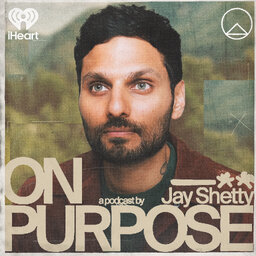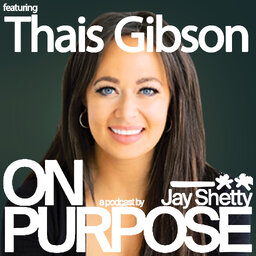Roxie Nafousi ON: Manifestation Masterclass & How to Set Better Intentions to Attract Your Dream Life
Today, I am talking to Roxie Nafousi. Roxie is an self-development coach, manifesting expert, author, ambassador for the Mental Health Foundation and Instagram Agony Aunt. Her commitment to transforming the lives of people who suffer with emotional and mental health issues, and helping them to fulfill their potential, has seen her become a well-known figure in the wellness world. She has hosted self love and motivational workshops and events for major brands as well as being a regular speaker on wellness and mental health panels both in and outside the UK.
Roxie opens up about her past, her addiction, and how she found spiritual healing that eventually led her to a better path in life. We both shared our vulnerability as we talk about the real value of manifestation, the misconceptions surrounding it, how fear and doubt can hold us back from manifesting our goals, and how we can continue to manifest the goals we want to achieve alongside the priorities we currently have.
Having clear goals will help us set a clearer vision of the future we want to have. And when we work hard to achieve these goals, its manifestation is put into action.
What We Discuss:
- 00:00:00 Intro
- 00:03:10 When did your spiritual journey start?
- 00:07:43 Tapping in drugs and addiction
- 00:10:48 Manifesting the wrong things
- 00:14:07 How do we manifest negativity?
- 00:17:02 Devaluing the meaning of manifestation
- 00:21:43 Misconceptions about manifestation
- 00:24:27 Having clear goals
- 00:30:22 Fear and doubt
- 00:36:05 Self care through fear and doubt
- 00:41:23 Does manifestation and prioritization work together?
- 00:45:44 Mom guilt
- 00:50:01 Legally changing a name
- 00:54:24 Who you want to be
- 01:00:35 Being clear with your vision
- 01:03:14 What does envy represent
- 01:08:59 Finding joy in other people’s losses
- 01:11:53 Building self respect
- 01:16:45 Roxie on Final Five
Episode Resources
- Roxie Nafousi | Instagram
- Roxie Nafousi | Facebook
- Roxie Nafousi | Twitter
- Roxie Nafousi | Website
- Manifest: 7 Steps to Living Your Best Life
Want to be a Jay Shetty Certified Life Coach? Get the Digital Guide and Workbook from Jay Shetty
https://jayshettypurpose.com/fb-getting-started-as-a-life-coach-podcast/
In 1 playlist(s)
On Purpose with Jay Shetty
My name is Jay Shetty, and my purpose is to make wisdom go viral. I’m fortunate to have fascinating …Social links
Follow podcast
Recent clips

Stop Trying to “Win” An Argument With Your Partner! (THIS Shift Will Turn Conflict into Communication)
38:35

Relationship Expert Thais Gibson: Do You Keep Attracting The Same Emotionally Unavailable Partner? (Use THIS Attachment Reset To Break The Cycle And Choose Better Partners)
1:44:33

Michael Pollan: The Hidden Cost Of Constant Distraction (Use THIS Practice To Reclaim Your Attention, Clarity, And Inner Freedom)
1:20:39
 On Purpose with Jay Shetty
On Purpose with Jay Shetty